Brooks School adds 13 new faculty, two hired under the Provost’s radical collaboration initiative
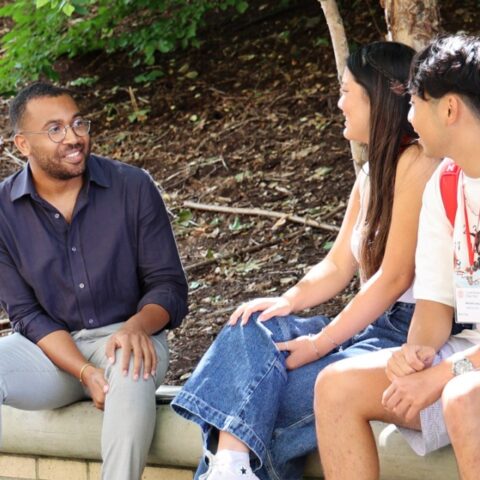
The Brooks School has strengthened its faculty with the addition of 13 new external hires who will bolster its research and instruction portfolios in economics, data science, race and equity, and environmental policy.
“It’s a testament to Dean Barry’s leadership, our faculty, and the vision of the Brooks School that we’ve been able to bring in such a strong group of new faculty members this year,” said Senior Associate Dean Jeff Niederdeppe, who led the recruiting process. “The diverse portfolio of innovative and rigorous policy research that exemplifies the group will offer us added strength and capacity in the core areas of our undergraduate and graduate academic programs.”
The group includes two new faculty who were recruited to Cornell under the provost’s Radical Collaboration initiative and will strengthen Brooks’ multidisciplinary capacity. Environmental economist and public policy expert Sheila Olmstead joins as part of a collaboration with the Cornell Atkinson Center for Sustainability; mathematician and data scientist Moon Duchin joins as part of a collaboration with the Center for Data Science for Enterprise and Society.
Amanda Agan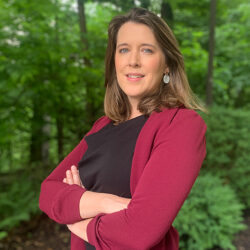
Amanda Agan’s research lies at the intersections of economics, law, and public policy with a focus on the economics of crime and labor market discrimination. Agan studies the consequences and determinants of criminal legal involvement and how various policies can change the incentives of defendants, criminal justice actors. She also studies sources of and policies to constrain the impacts of discrimination in the labor market and other spheres. Agan has a passion for undertaking rigorous, policy-relevant research and teaching research methods to the next generation of policy and economics scholars.
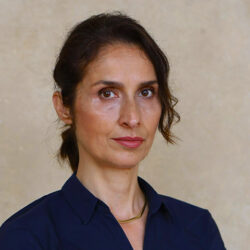
Sule Alan
Sule Alan’s work integrates behavioral science with social policy design to address pressing global issues. She conducts large-scale randomized interventions to promote evidence-based policymaking, with a particular emphasis on reducing socioeconomic and gender inequalities in developing countries. As Education Sector Co-Chair at MIT’s Abdul Latif Jameel Poverty Action Lab (J-PAL), Alan collaborates with global leaders to bridge research and policy. She also teaches impact evaluation and research design, preparing students to tackle complex policy challenges with evidence-driven approaches. Alan is a Professor of Economics and Public Policy at the Cornell Jeb E. Brooks School of Public Policy.
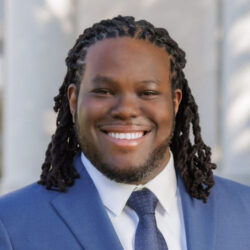
Romaine Campbell
Romaine A. Campbell is currently a Provost Faculty Fellow and will join the Cornell Jeb E. Brooks School of Public Policy as an Assistant Professor starting July 2026. An applied microeconomist, Romaine’s research and teaching centers racial inequality in the United States, particularly in criminal justice, education, and labor markets. His work explores strategies to address persistent racial disparities, including examining how federal oversight of police departments can mitigate the social harms of aggressive policing without endangering public safety, and evaluating whether in-prison education programs can effectively reduce recidivism among formerly incarcerated individuals.
Moon Duchin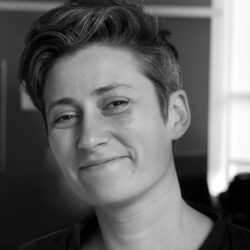
Moon Duchin’s research focuses on discrete geometry and randomized models, with applications to the study of voting and democracy. A prominent voice on fair redistricting, Duchin has developed mathematical models to analyze the potential and actual outcomes of changes to policy and voting districts. She has served as an expert in redistricting litigation in Wisconsin, North Carolina, Alabama, South Carolina, Pennsylvania, Texas, and Georgia. She is a member of the faculty at the Brooks School and the Department of Mathematics, affiliated with the Center for Data Science for Enterprise and Society. Duchin was hired as part of the Provost Office’s Radical Collaboration initiative.
Julie Ficarra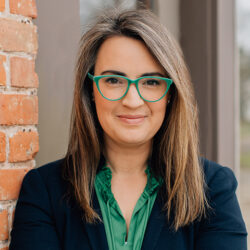
Julie Ficarra is interested in how internationalization policy can further global democracy, peace, and sustainability, and specifically, how increasing mutuality and reciprocity in educational exchanges can help to advance this goal. Ficarra is committed to engaging students with communities locally and globally, especially through her course on Refugee Resettlement Policy and a Spring Break Exchange with USFQ in Ecuador. She teaches courses in Global Citizenship, Comparative Education Policy, and Diversity, Dialogue and Ethical Leadership.
Benjamin Goldman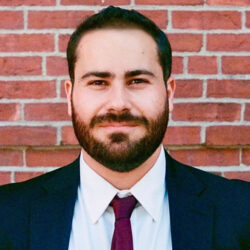
Benjamin Goldman’s research focuses on labor and public economics, with an emphasis on race- and class-based economic disparities in the United States. Goldman studies the sources of these disparities and assess policies designed to mitigate them. He begins his career at Brooks as a post doctoral fellow and will transition to an Assistant Professor position in 2025. Goldman is also a research affiliate at Opportunity Insights, the Wilson Sheehan Lab for Economic Opportunities, and EdRedesign. He received his PhD from Harvard University in 2024.
Johannes Haushofer
Johannes Haushofer is a development and behavioral economist who studies the effectiveness of poverty alleviation interventions in low-income countries. Haushofer has worked on unconditional cash transfers with the NGO GiveDirectly; on health interventions such as water chlorination and community monitoring; on simple psychotherapy programs to improve mental health; and most recently, on international educational migration. His work in behavioral economics has focused on the effects of stress on economic choice. Haushofer founded the Busara Center for Behavioral Economics, a behavioral lab in Nairobi; and Malengo, an NGO that facilitates international educational migration.
William Lodge II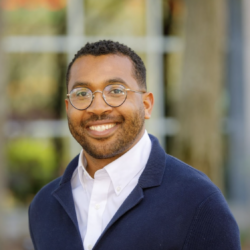
William Lodge II is a behavioral and social scientist dedicated to advancing health equity and HIV prevention and care among gender and sexual minorities, both in the U.S. and globally. Lodge’s work focuses on how social and structural determinants—such as stigma and discriminatory policies—impact health outcomes. He employs an intersectional approach and community-engaged research to address these issues. As a member of the Cornell NIH FIRST cohort, funded by the NIH Common Fund’s Faculty Institutional Recruitment for Sustainable Transformation (FIRST) Program, Lodge strives to diversify the biomedical research field. Through research and teaching in Global Health, he critically engages with public health and policy to advocate for equitable health solutions for marginalized populations.
Ellen Lust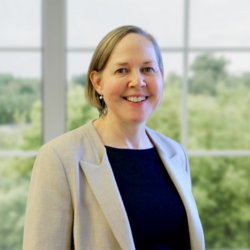
Ellen Lust’s research examines the role of social institutions and local authorities in governance. She has conducted fieldwork and implemented surveys in Algeria, Egypt, Jordan, Kenya, Libya, Malawi, Morocco, Palestine, Syria, Tunisia, and Zambia. Lust is the Founding Director of the Governance and Local Development Institute, which was first established at Yale University (in 2013) and is now based at the University of Gothenburg (from 2015) and Cornell University (from 2024). She serves as Professor in the Government Department of the College of Arts and Sciences and the Brooks School.
Sheila Olmstead 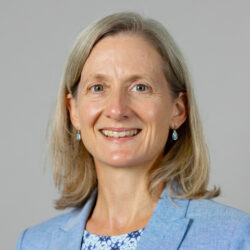
Sheila Olmstead studies the economic dimensions of environmental policies, especially those related to water quantity and quality. Her research has influenced academic thinking and regulatory policies on topics including climate change and water resource management, the effect of various pricing strategies on water conservation, economics and water quality considerations around shale gas development, and measuring the economic value of improved water quality. Olmstead is an Atkinson Scholar at the Cornell Atkinson Center for Sustainability and was hired as part of the Provost Office’s Radical Collaboration initiative.
Fikri Pitsuwan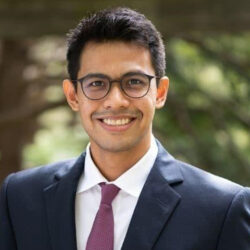
Fikri Pitsuwan’s research is in game theory and its applications in industrial regulation, political economy, and public policy. In a current project, Pitsuwan studies, in collaboration with the Zurich Information Security & Privacy Center at ETH Zürich, the game-theoretic design of crowdsourced security systems for Switzerland’s e-voting platform. Pitsuwan has worked on intergenerational collective action problems as part of the Global Priorities Fellowship, with the broad goal of improving the well-being of future generations. His teaching interests include microeconomics, game theory, and market design for public policy.
Jan Voelkel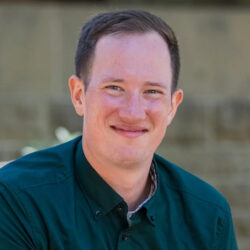
Jan G. Voelkel is a postdoctoral researcher and will soon join the Jeb E. Brooks School of Public Policy at Cornell University as an Assistant Professor of Public Policy and Sociology. Jan’s research investigates the factors influencing individuals’ support for leaders and organizations advocating for moral change. This work contributes to policy discussions on structural democratic reforms, as well as economic and health equity. Jan looks forward to teaching courses at Brooks that will offer students cutting-edge analytical and statistical skills.
